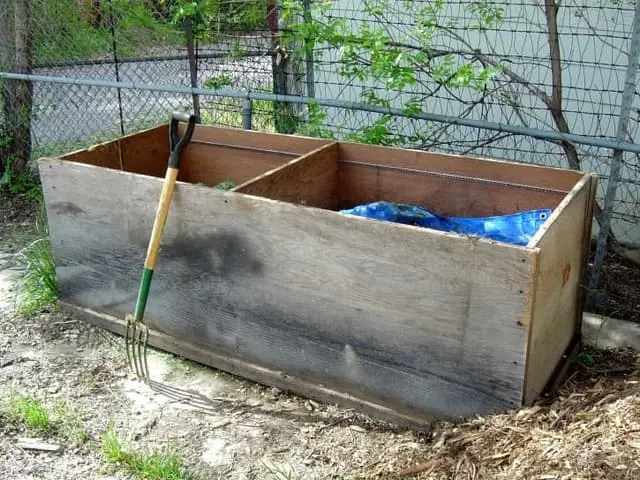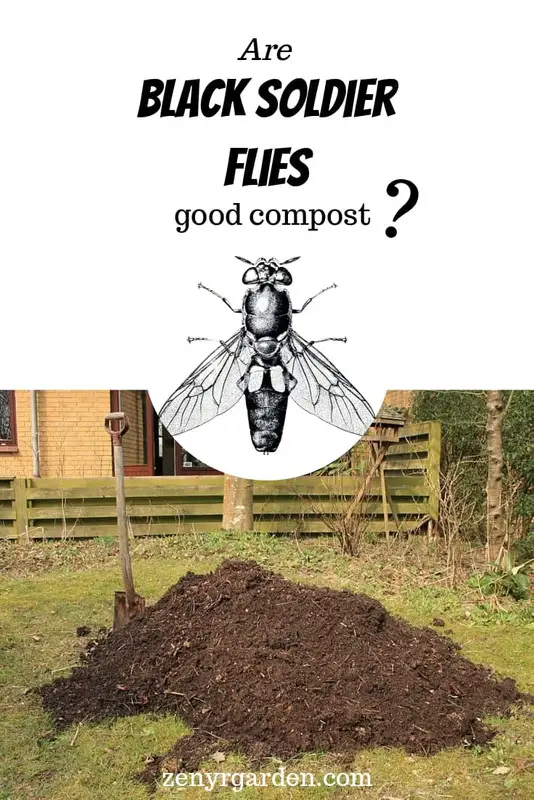Black soldier flies are good for composting. They help break down foods that are 10 times their weight. The process happens for 5-10 days, which is much faster than traditional composting by microbes or fungi which can take up to 90 days.
If you're curious, let's start with a bit of:
Understanding the BSF Larvae
The only stage that the BSF eats voraciously is the larvae stage. For the first 2 weeks of their lives, the larvae devour the most amount of food. This is when they'll help break down the stuff in your compost bin. The adult black soldier flies don't eat but only drink. Because of this, they don't cross-contaminate or spread diseases.
To get a BSF compost bin started, you can get the worms directly from the sellers. Two good places are PopWorms & Northwest RedWorms. They sell you a box of 2000 or 10,000 for about $20 or more. The worms will get to you wiggly & alive.
Getting the worms means you don't need to go through the egg incubating process to get BSF larvae. You can keep some of it for reproduction & get the eggs yourself to keep the colony alive.
When you're ready, we can start:
Preparing the Compost Box
It's good to use a dark compost box because BSF larvae are light-sensitive. They don't like too much light when eating. Cover the box with a lid or put it in shade also works very well. If you use a lid, make sure to leave at least some gap so the gases get exchanged in & out.
Also, create some good airflow under & around the box. This helps create an aerobic (with oxygen) environment for the larvae to live & breathe. An anaerobic (without oxygen) environment may suffocate the babies–especially for the BSF larvae which tend to generate a lot of heat because of their non-stop wiggling.
Good air flow helps solve the heat issue. For this purpose, you can use coconut shells, wood chips, rice hulls or any materials with similar properties. We haven't tried vermiculite or perlite, but they sound promising. Cedar wood may not be ideal because of its overly aromatic smell.
It's important that you clean or air out the box. If you re-use a box which may contain dead skins or dead bodies of previous BSF generations, remember to wash them out. Some growers have noticed early larvae death when pouring new larvae into the same box with the bodies & skins of other generations.
When BSF larvae or flies die, the bacteria/acid in their intestines may get released out around the box. This may not be ideal for younger generations, especially when the raising density is high.
After preparing the compost box, one may wonder:
What Is the Compost Ratio
One little BSF larvae can take on food waste 10 times their size. That is, if you have 1 lb/kg of larvae, you can compost 10 lbs/kg of food or organic waste very efficiently.
When you're starting out, make the food a bit more moist but not too wet. This helps with the drying out & hardening of the foods, especially if you live in a hot and dry climate.
These guys will consume pretty much anything. Give them banana, rotten tomatoes, rotten eggs, meat, fish, fruits, etc. In just about 2 weeks, most of the food waste will turn into good, usable proteins & fats stored inside the BSF bodies. You can then decide what to do with the larvae. Either to feed them live to your pets or keep some to reproduce more flies and get the eggs.
If there's some liquid in the box, you can use them like a worm tea or a fertilizer for your plants. It's good to let the juice age for 1-1.5 months or pre-treat it with some fungi or good microbes just to play it safe.
>> Here's 'How to compost with black soldier fly' step by step if you'd like a look at it later:

Composting is an overall truly fun, easy & rewarding process. Give it a try, you might like it.
Share or pin this post!



